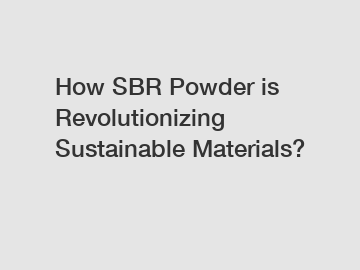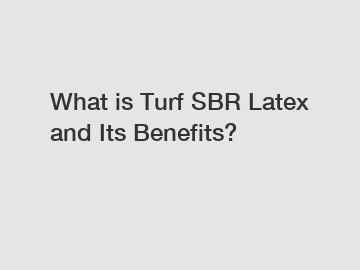The Ultimate Guide to Cellulose Ether: Comparisons and Uses
Cellulose ether is a versatile and widely-used material in various industries due to its unique properties. In this ultimate guide, we will explore the different types of cellulose ethers, compare them, and discuss their various applications.
1. What is Cellulose Ether?
Cellulose ether is a water-soluble polymer derived from cellulose, a natural polymer found in plants. It is commonly used as a thickening agent, stabilizer, and film-forming agent in a wide range of industries such as construction, pharmaceuticals, and food.
2. Types of Cellulose Ethers.
There are several types of cellulose ethers available in the market, including methyl cellulose (MC), hydroxypropyl methyl cellulose (HPMC), carboxymethyl cellulose (CMC), and ethyl hydroxyethyl cellulose (EHEC). Each type has its own unique properties and applications.
3. Comparisons of Cellulose Ethers.
- Methyl cellulose (MC): MC is known for its high water retention ability and excellent adhesion properties, making it ideal for use in construction materials such as tile adhesives and cement renders.
- Hydroxypropyl methyl cellulose (HPMC): HPMC is a versatile cellulose ether with good water retention, thickening, and film-forming properties. It is widely used in pharmaceuticals, cosmetics, and food products.
- Carboxymethyl cellulose (CMC): CMC is a water-soluble polymer with excellent thickening and stabilizing properties. It is commonly used in the food industry as a thickener and stabilizer in products such as ice cream and sauces.
- Ethyl hydroxyethyl cellulose (EHEC): EHEC is a cellulose ether with excellent film-forming and thickening properties. It is often used in paints, coatings, and adhesives.
Featured content:What is the Difference Between Compound Fertilizer and Mixed Fertilizer?
What Is Polyvinyl Alcohol Powder Commonly Used For?
How effective is low formaldehyde anti-wrinkle agent?
How Low Formaldehyde Anti-Wrinkle Finishing Agents Work?
10 Questions You Should Know About Eco-Friendly Anti-Wrinkle Finishing Agents
How Can Eco-Friendly Anti-Wrinkle Agents Transform Beauty?
What Does Hydroxypropyl Methylcellulose Do to Your Body?
4. Uses of Cellulose Ethers.
Cellulose ethers are used in a wide range of applications, including:
- Construction: as thickeners and binders in mortar, plaster, and tile adhesives.
- Pharmaceuticals: as binders in tablets, coatings in capsules, and viscosity modifiers in eyedrops.
- Food industry: as thickeners, stabilizers, and emulsifiers in products like ice cream, sauces, and dressings.
- Cosmetics: as film-forming agents, thickeners, and stabilizers in creams, lotions, and shampoos.
In conclusion, cellulose ethers are versatile materials with a wide range of applications in various industries. By understanding the different types of cellulose ethers and their properties, manufacturers can choose the right cellulose ether for their specific needs.
If you are looking for a reliable supplier of cellulose ethers, contact us today to discuss your requirements and find the best solution for your business.
Remember, cellulose ethers are a valuable resource in your production process. Contact us to learn more about how cellulose ethers can benefit your business.
For more information, please visit cellulose ether, leveling adhesive supplier, styrene-acrylic emulsion manufacturer.
Featured content:Can Subzero Cryotherapy Machine Enhance Recovery Beyond Traditional Methods?
Where to Buy a Cryotherapy Chamber: Home vs. Commercial Options
Is Your Privacy at Risk with Di-Me's Data Practices?
How At Home Cryo Chamber Benefits Recovery Practices
Unlocking the Benefits of Magnesium Carbonate FCC Standard
Understanding Magnesium Oxide: A Comprehensive Guide
What are the key applications of n,n’-dimethyl urea?
Related Articles









Comments